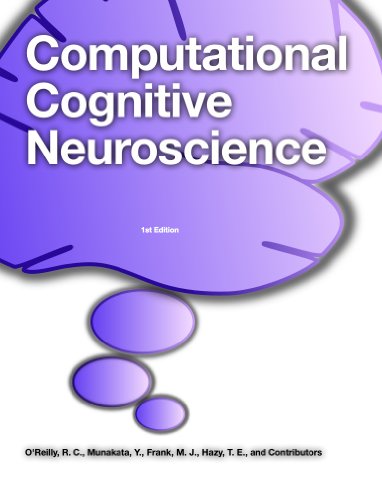
Computational Cognitive Neuroscience
by O'Reilly, Munakata, at al.
Publisher: University of Colorado Boulder 2021
ISBN/ASIN: B007H9YWAG
Number of pages: 181
Description:
Introduction to computer modeling of the brain, to understand how people think. Networks of interacting neurons produce complex emergent behavior including perception, attention, motor control, learning, memory, language, and executive functions (motivation, decision making, planning, etc).
Download or read it online for free here:
Download link
(19MB, PDF)
Similar books
 Decision Making under Uncertainty
Decision Making under Uncertaintyby Kerstin Preuschoff, Peter NC Mohr, Ming Hsu - Frontiers Media SA
Little is known about how uncertainty is processed and how they are integrated with expected rewards throughout the decision making process. This book provides a deeper understanding of the processes behind decision making under uncertainty.
(6820 views)
 Neuroscience: Science of the Brain
Neuroscience: Science of the Brain- The British Neuroscience Association
The British Neuroscience Association commissioned the booklet for the purposes of teaching young people about the brain and neuroscience. The booklet contains short explanatory chapters on different subjects written by experts in each topic.
(13843 views)
 Encyclopedia of Computational Neuroscience
Encyclopedia of Computational Neuroscienceby Eugene M. Izhikevich, at al. - Scholarpedia
Neuroscience, Electrophysiology, Neuron, Network Dynamics, Brain Models, Synapse, Memory, Conditioning, Consciousness, Vision, Olfaction, Neuroimaging, Dynamical Systems, Oscillators, Synchronization, Pattern Formation, Chaos, Bifurcations, etc.
(16472 views)
 Spiking Neuron Models: Single Neurons, Populations, Plasticity
Spiking Neuron Models: Single Neurons, Populations, Plasticityby Wulfram Gerstner, Werner M. Kistler - Cambridge University Press
This introduction to spiking neurons can be used in advanced-level courses in computational neuroscience, theoretical biology, neural modeling, biophysics, or neural networks. It focuses on phenomenological approaches rather than detailed models.
(9899 views)